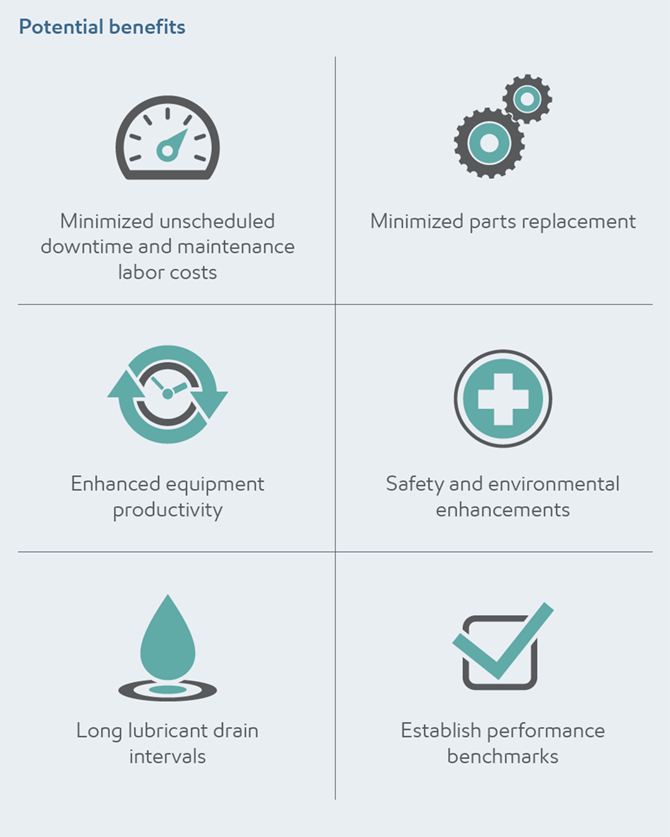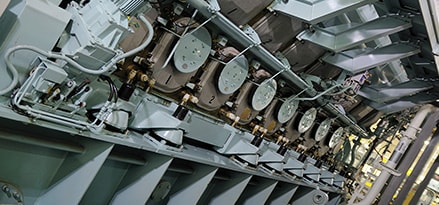Description
Our engineers use their expertise to inspect, report and document the condition of the internal components of diesel engines and industrial equipment. They conduct complete engine inspections during engine overhaul and partial engine inspections during component replacement or repair. Borescope inspections occur during normal preventive maintenance (PM) and in response to abnormal oil analysis reports.
Application
We work with you to:
- Perform inspections using state-of-the-art borescopes to document engine and lubricant performance
- Follow inspection procedures and standards
- Photograph critical engine components
- Document engine analysis, findings and recommendations
- Compare results with previous inspection data and established performance benchmarks
- Help establish optimum oil drain interval
- Document estimated value and potential benefits of corrective actions
Deliverable: An Engineering Service Report outlines conditions, recommended preventive maintenance actions, improvements to operational or industrial maintenance procedures, the value of the service rendered and potential benefits from implementing recommendations. It will include photographs and borescope pictures as appropriate. The aim is to facilitate industrial maintenance and engine maintenance by improving equipment productivity using the engine analysis in hand.
Common opportunity areas
- Inappropriate air/fuel ratios
- Poor air filtration
- Fuel injector or turbocharger malfunctions
- Poor fuel quality (high sulfur or other contaminants)
- Wrong lubricant
- Lack of optimum temperatures
- Excessive blow-by
- Worn valve guides
- Desire to extend oil drain interval
- Filtration practices
Safety, health and environment
Our field engineers are attuned to the hazards of handling, storing and using petroleum products. They strictly observe safety and environmental rules, as well as ExxonMobil and customer safety practices. They coordinate efforts through designated plant personnel verifying electrical and mechanical lockout and proper tagging prior to working on equipment, and providing recommendations to help reduce hazards.
Our field engineers are attuned to the hazards of handling, storing and using petroleum products. They strictly observe safety and environmental rules, as well as ExxonMobil and customer safety practices. They coordinate efforts through designated plant personnel verifying electrical and mechanical lockout and proper tagging prior to working on equipment, and providing recommendations to help reduce hazards.


